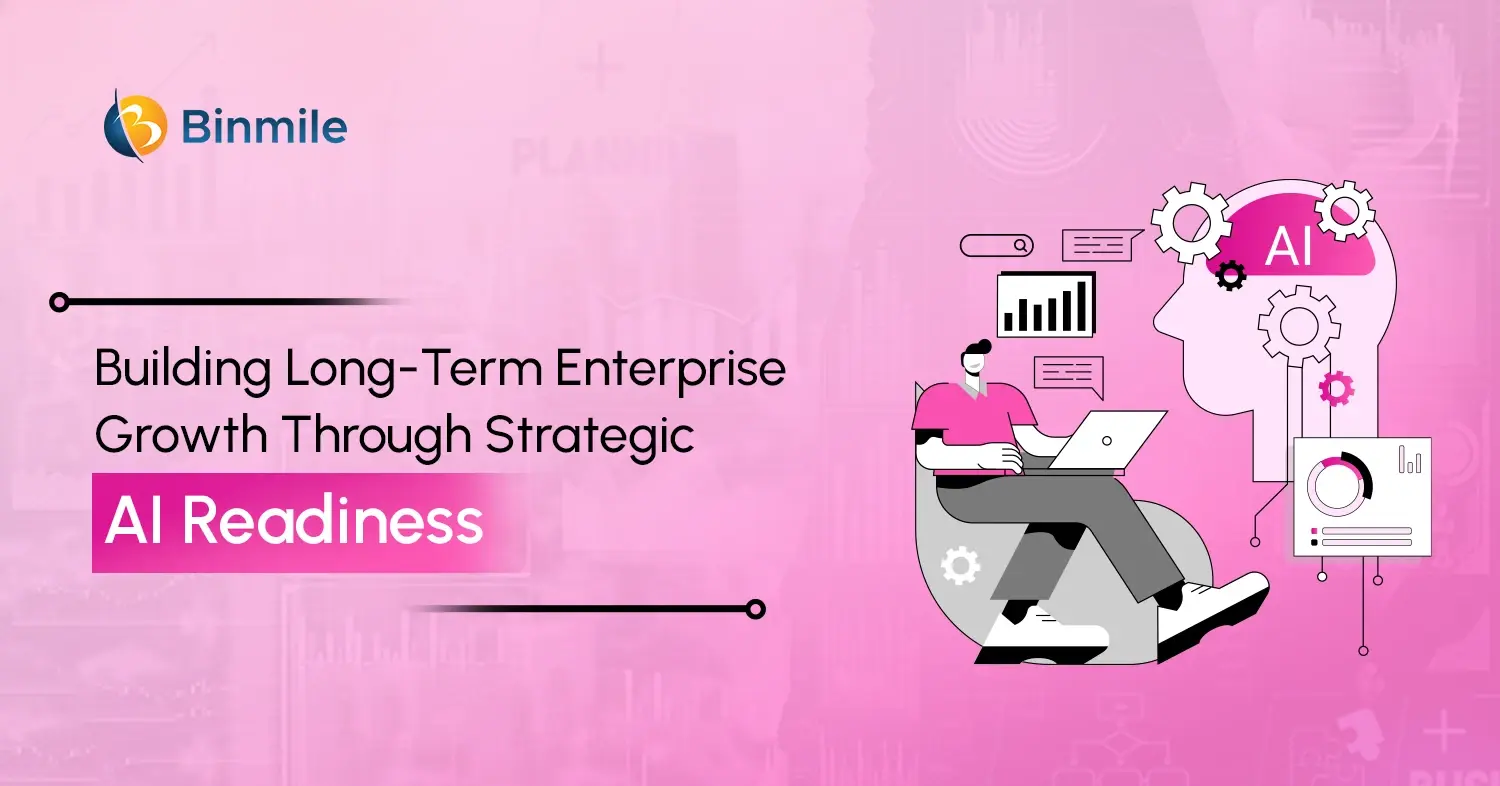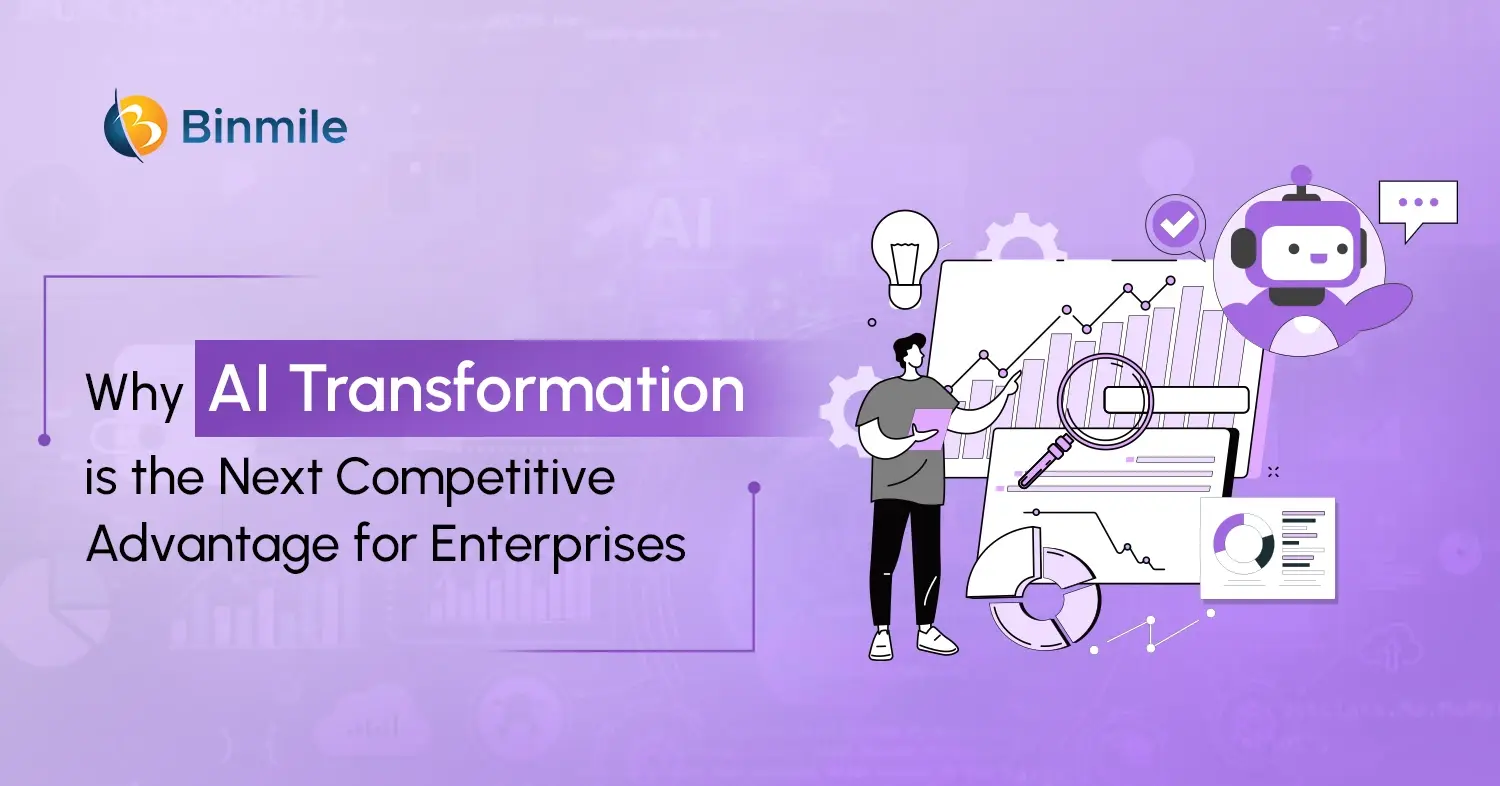Intelligent automation or intelligent process automation is catching up fast as one of the biggest trends in the business world. Organizations that leverage the power of this technology experience automated efficiency in their internal business processes by eliminating manual load, As a result, it improves accuracy and efficiency over time.
What is Intelligent Automation?
Intelligent automation (IA) is the fusion of Robotic Process Automation (RPA) and other advanced technologies, such as –
- Artificial Intelligence
- Optical Character Recognition (OCR)
- Intelligent Character Recognition (ICR)
- Analytics
- Business Process Management (BPM)
It is also known as hyper-automation and intelligent process automation (IPA) used to simplify organizational processes, improve operational efficiencies, and free up resources. Basically, it combines AI, RPA, and other technologies to empower end-to-end business process automation. The goal is to accelerate digital transformation, automating any front- or back-office business process, to say the least.
Also Read: Artificial Intelligence Vs Intelligent Automation
According to Statista, the global market of IPA (intelligent process automation) was forecasted to be around $20 billion, as of 2021, growing at a CAGR of 16% to touch the revenue figure of $30 billion by 2024. Moreover, Grand View Research reports that the global market size of IPA was valued at $6.02 billion in 2018. It is growing at a CAGR of 16.9% over the forecast period, as reported.
According to the report, factors contributing to boosting the market growth of IPA include –
- Productivity improvement in business operations
- Rising technological penetration across multiple industry sectors
- The capabilities of IA solutions in terms of empowering businesses with agile processes and smart technologies to induce rapid and more intelligent decisions

Leveraging Intelligent Automation For Business Benefits
Intelligent automation, if implemented smartly, can engineer creative solutions leading to the growth of an organization. From better operational efficiency to reduced costs, the technology’s benefits for enterprises and business leaders epitomize its implementation as a viable strategy for growth and success. Explore more about the business benefits of IA in our quick rundown.
1. Increased Process Efficiency
Intelligent automation streamlines an organization’s internal business process by reducing manual load. Therefore, if implemented, it pans out dramatic mitigation in process handling times, resulting in better process speed and operational efficiency. The technology can produce intelligent data aiming to improve business software. In turn, it will have better process analytics and areas for improvement.
IA solutions combine machine learning algorithms to facilitate various processes. They include gathering, organizing, tracking, analyzing, reporting, and storing sensitive and crucial data. Utilizing such data leads to improvement in current operations. It helps companies address areas for improvement, anticipate needs, and develop best practices. It also results in an improved process efficiency over time.

2. Improved Customer Service
The best example to substantiate the efficiency of intelligent automation in improving customer experience is conversational AI or Chatbots. IA combines advanced technologies like AI and RPA. Therefore, the solutions of this technology help companies handle thousands of customer inquiries, reduce call-center wait times, and improve customer satisfaction.
Natural Language Processing (NLP), a form of AI, is leveraged in intelligent test automation to analyze text-based information. It deciphers connotations, sentiment, and intent in the context of customer service. For this, it uses statistics and learning algorithms.
For example, when a customer raises a support ticket as a free text with a chatbot, the NLP processes the texts to measure the level of urgency in the request and the sentiment. Based on the analysis, the severity and priority associated with customer interaction are managed.
3. Effective Management Of Costs
Intelligent automation, if implemented strategically, can help an organization quickly adjust its capacity in the event of a sudden uptick in demand. As a result, the technology enables the organization to deliver and maintain a high-quality customer experience with nominal disruption or costs.
Since IA doesn’t rely on human interaction as it runs in the background, the technology intuitively responds to urgent demand without marshaling extra resources. As a result, companies using IA can ensure effective management of peak seasons and customer satisfaction over time.
4. Improved Customer Experience And Service
The best thing about custom software solutions is that they never cease the continuity of services, regardless of the urgency of demand. In turn, technology helps companies with the predictability and reliability of their customer services. In other words, by implementing IA, your business can bring a high-quality and reliable product to market and respond to customer queries promptly. It collectively constitutes a richer and more pleasant customer experience.
5. More Scope For Automation Initiatives
Organizations that implement intelligent automation can efficiently automate more of an end-to-end process. It can increase the number of processes that are in scope for automation. A company can leverage the technology for a competitive advantage.
The technology assists organizations in gaining easy access to relevant data, making informed decisions, and streamlining processes efficiently. The overall result of these processes lays the groundwork for improved customer service, enhanced efficiency, reduced instances of fraud, and more scope for automation initiatives.
Also Read: RPA vs Hyperautomation vs Intelligent Automation
7 Tips For Successful Implantation Of Intelligent Automation
The way intelligent automation is catching up in businesses worldwide showcases the ingenuity of technology and its ability to bring automated efficiency to the organizational process. A report from McKinsey Global Institute predicts the dominance of automation in countries like America, Japan, and France, anticipating the displacement of nearly 25% of jobs in these nations by 2030 by automation. The report indicates why organizations around the world must prioritize intelligent automation to reduce manual load and improve process efficiency to stay competitive in their niche. Here are some steps you can follow to implement IA in your business.
1. Have a Clear Set of Goals when Choosing the Right IA Tools
The main reason for choosing intelligent automation is to make sure that the goals you have in mind are accomplished successfully. Therefore, when choosing the right IA tools for your business, begin with a clear set of goals first. Choosing something without a clearly-defined goal is like walking into a pitfall blindfolded.
The connotation here is that choosing the right automation tools well-aligned with goals can help you protect your automation projects from falling short of expectations. Besides relying on the goals, you can also make use of your organizational needs, objectives, and available resources to make the right selection of IA tools.
Things to do:
- Start with a goal-oriented implementation strategy
- Make an in-depth analysis of tasks and processes requiring automation
- Figure out the anticipated results
- Assess the benefits of outcomes in relation to the business
- Choose IA tools in accordance with the goals
- Be completely aware of the project’s scope and complexity
2. Make a Detailed Cost-Benefit Analysis
Implementing intelligent automation is quite a delicate procedure in the sense that it should align your invested money with the expected ROI so that you can lay the perfect premise for shaping your decision.
Also, you need to conduct a proper assessment per department to have an informed idea of the scope and potential of IA across the multi-sectors of your company. It is also necessary to involve relevant stakeholders in the process.
The significance of stakeholder engagement is that it will lead to an efficient decision-making process, with the support of the long-term sustainability of your business.
Things to do:
- Assess if the IA projects would justify your invested money with its expected ROI
- Gauge the scope and potential of IA for your business through departmental assessment within your organization
- Involve relevant stakeholders to facilitate an efficient decision-making process
- Run a detailed cost-benefits analysis to gauge the commercial viability of your business automation
3. Set a Roadmap for a Disruptive Journey
To ensure that business operations run smoothly with value-driven user engagement, it is essential for you to see if you need to redefine your organizational structure and culture.
Meaning, preparing for intelligent automation-based user engagement that drives values. Besides, you can also onboard top talents experienced in amplifying the value potential of IA capabilities. Your IA systems that you develop should be able to simulate human intelligence and behavior, particularly for service management systems that have direct user interactions, say, for example, ticketing systems.
Things to do:
- Enable your organization for value-driven user engagement based on intelligent automation
- Bring onboard in-house talents to boost the value power of IA
- Build an IA system capable of simulating human intelligence and behavior
4. Prioritize Standard and Mature Processes
Are your existing business processes ready for automation? That’s the most important thing you need to ensure before you move ahead with IA implementation. Be familiar with whether your current business processes are ready for automation and could be helpful for your workforce over time.
The ideal recommendation is to start with cross-departmental back-office processes. Why? Because 60% of such processes are prone to mistakes, repetitive, low fault-tolerant, and speed-sensitive. More examples of such processes include sales operations, employee onboarding data collection, and customer due diligence.
5. Involve a Teamwork Process
Implementing intelligent automation is not a single process. It should involve the participation of relevant stakeholders and management for effective long-term development. They will take the onus of explaining to employees about the significance, capabilities, and efficiency of IA.
To ensure that these things are done successfully, it is important that they (i.e. stakeholders and management) themselves are profoundly educated in every aspect of software robots.
Another thing to consider in this regard is making employees aware of the perceptible impacts of automation across departmental workings within an organization. The reason why this is extremely necessary is that you can’t successfully implement automation if you don’t gain the confidence of employees supporting the implementation.
Lastly, do not ignore the participation of your IT team, as they can assist you in choosing the right IA tools in alignment with your goals. Their technical expertise and soundness will also help you tackle unexpected issues or malfunctions effectively.
6. Don’t Rush, Meticulously Test All Case Scenarios
Before moving on to the next pilot phase of your IA implementation, meticulously analyze specific case scenarios by involving testing and validating the automation solution. Concerning the pilot phase, don’t forget to configure and test the software robots.
In addition, you need to run a live pilot, and comprehensively evaluate the outcomes. Remember that the post-implementation adoption process lays the groundwork for an effective and successful IA implementation. In addition, it gives you enough time to properly maintain an apt pace of the automation journey and avoid mistakes in the process.
7. Aptly Maintain the IA Project
The IA project is likely to have some considerable changes in your business processes. In that case, ensure that those changes don’t conflict with the market and regulation changes. Also, risks associated with data and security accessibility are aptly managed.
One of the most important things to consider in this regard is the overall benefits of what a whole automation journey will bring forth in your organization. It will help you with proper insights into the whole installation of IA.
Last but not least, the automation solution should be measured with respect to its results. This sort of assessment involves the efficacy of the solution and how it will justify the ROI (return on investment).
Also Read: Benefits of AIOps Automation
Conclusion
Intelligent automation or intelligent process automation is catching up fast as one of the biggest software development trends in the business world. It is benefiting companies, in terms of helping them bring forth automated efficiency in their internal business processes as a result of eliminating manual load. Moreover, the technology is deemed a rational application to result in improved accuracy and efficiency over time.
A technology that is the fusion of robotic process automation and other advanced technologies, IA portrays as commercially viable to simplify organizational processes. It improves operational efficiencies and frees up resources. The purpose of IA implementation is to speed up the digital transformation of business, helping organizations achieve a competitive advantage in their niche.
Hire Binmile as a qualified software development company and an expert in the field of test automation.









